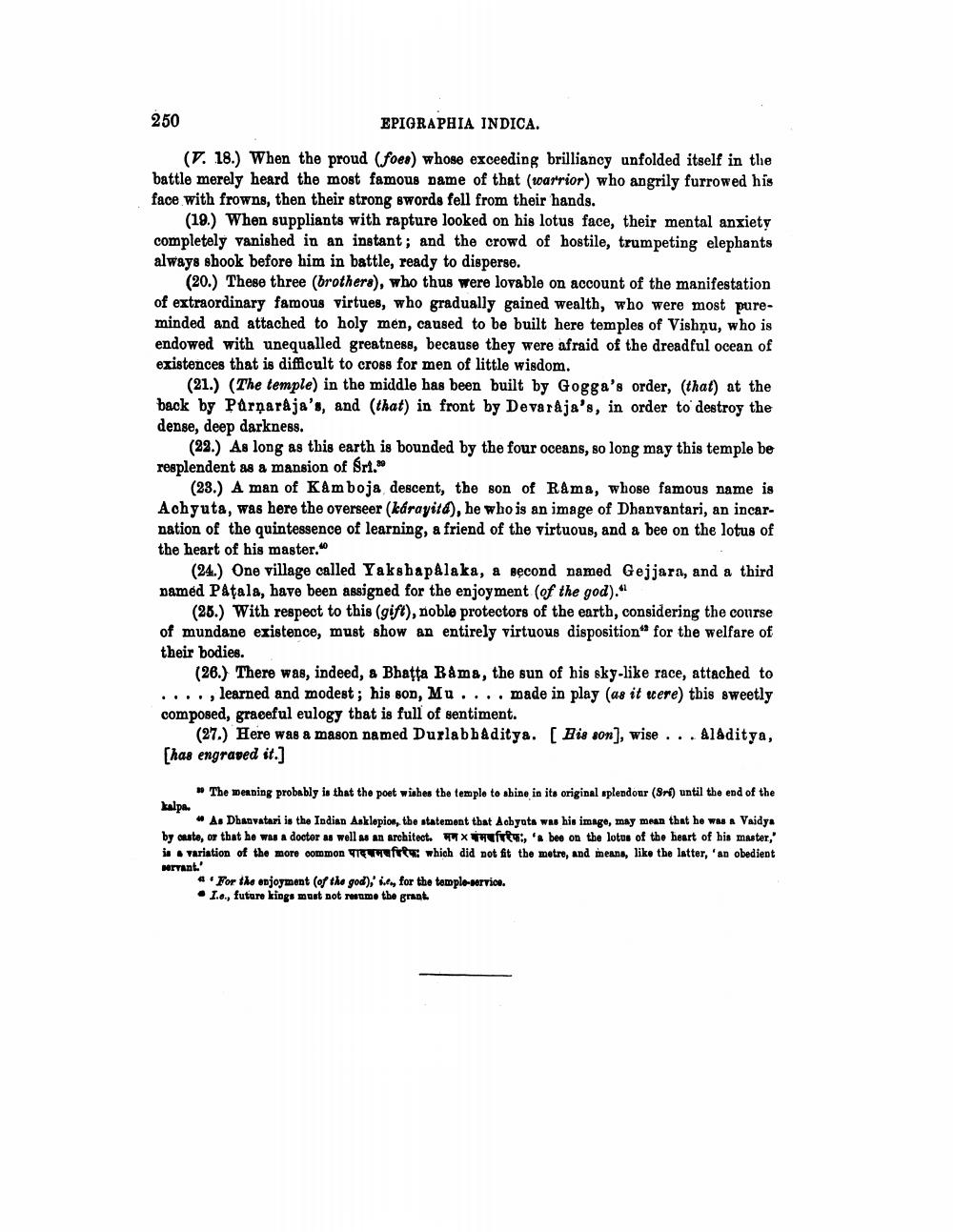________________
250
EPIGRAPHIA INDICA.
(V. 18.) When the proud foes) whose exceeding brilliancy unfolded itself in the battle merely heard the most famous name of that (warrior) who angrily furrowed his face with frowns, then their strong swords fell from their hands.
(19.) When suppliants with rapture looked on his lotus face, their mental anxiety completely vanished in an instant; and the crowd of hostile, trumpeting elephants always shook before him in battle, ready to disperse.
(20.) These three (brothers), who thus were lovable on account of the manifestation of extraordinary famous virtues, who gradually gained wealth, who were most pureminded and attached to holy men, caused to be built here temples of Vishnu, who is endowed with unequalled greatness, because they were afraid of the dreadful ocean of existences that is difficult to cross for men of little wisdom.
(21.) (The temple) in the middle has been built by Gogga's order, (that) at the back by Parmaraja's, and (that) in front by Devaraja's, in order to destroy the dense, deep darkness.
(22.) As long as this earth is bounded by the four oceans, so long may this temple be resplendent as a mansion of Sri.
(23.) A man of Kamboja descent, the son of Rama, whose famous name is Achyuta, was here the overseer (kárayitd), he who is an image of Dhanvantari, an incarnation of the quintessence of learning, a friend of the virtuous, and a bee on the lotus of the heart of his master.
(24.) One village called Yakshapalaka, a second named Gejjara, and a third named Patala, have been assigned for the enjoyment (of the god).
(25.) With respect to this (gift), noble protectors of the earth, considering the course of mundane existence, must show an entirely virtuous disposition for the welfare of their bodies.
(26.) There was, indeed, a Bhatta Båma, the sun of his sky-like race, attached to . . . . , learned and modest; his son, Mu.... made in play (as it were) this sweetly com pobed, graceful eulogy that is full of sentiment.
(27.) Here was a mason named Durlabbaditya. ( His son], wise ... Aladitya, [has engraved it.]
* The meaning probably is that the poet wishes the temple to shine in its original splendour (rf) until the end of the kalpa
As Dhanvatari is the Indian Asklepion, the statement that Acbyata was his image, may mean that he was a Vaidya by caste, or that he was a docter as well as an architect. Ther , 'a bes on the lotus of the heart of his master, in variation of the more common 974 afrin which did not fit the metro, and means, like the latter, 'an obedient vervant.
4. For the enjoyment (of the god), ey for the templo-service. • I.e., futare kings must not resume the grant




